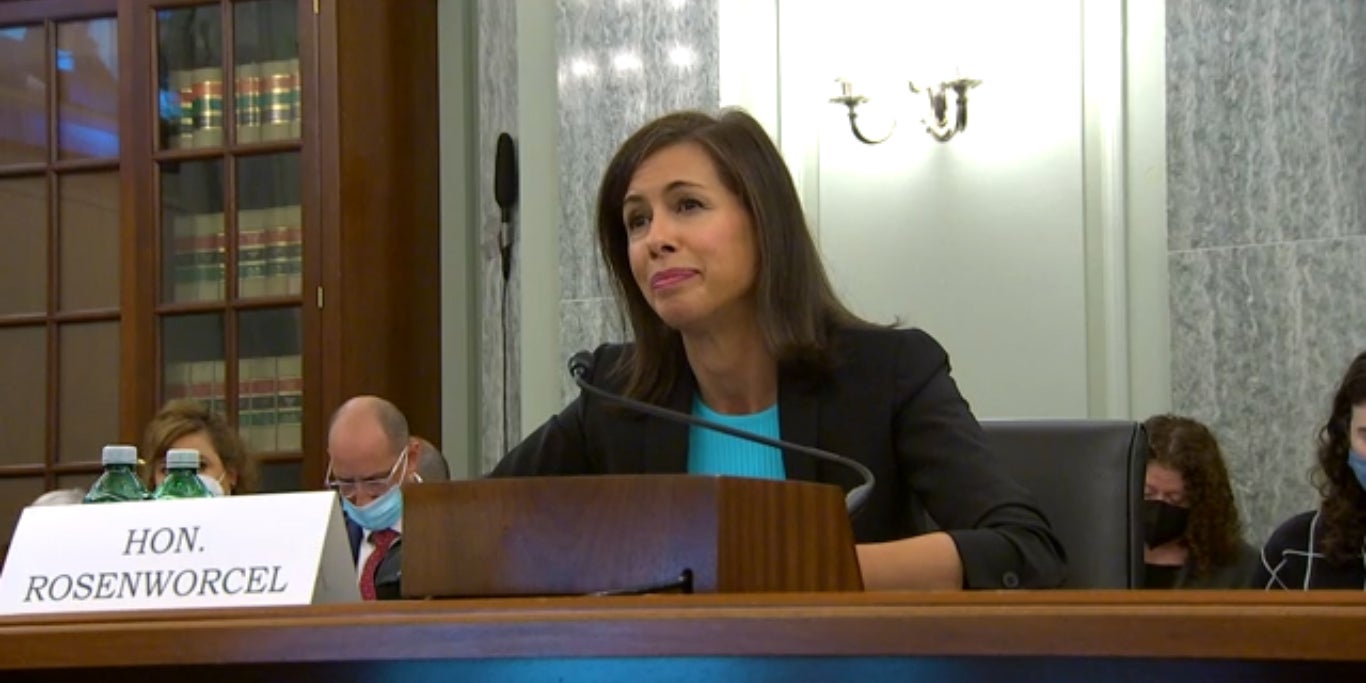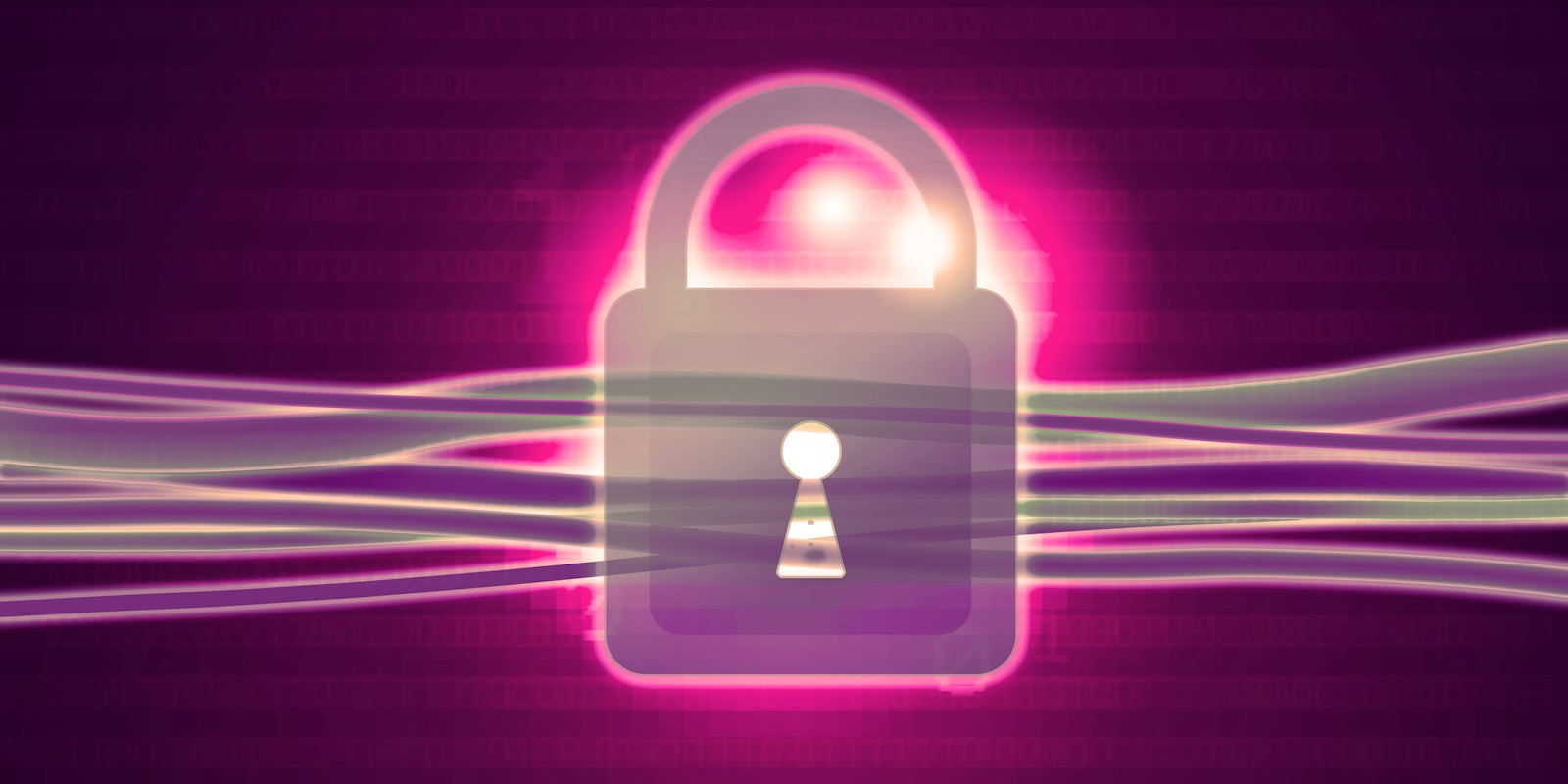Welcome to the Tuesday edition of Internet Insider, where we dissect tech and politics unfolding online.
TODAY:
- Analysis: There’s clearly an appetite for a data privacy law, now Congress just needs to pass a good one
- FCC wants telecom companies to be more transparent with data breaches
- FTC warns of scam involving cryptocurrency ATM—and a QR code
Sign up to receive the Daily Dot’s Internet Insider newsletter for urgent news from the frontline of online.

BREAK THE INTERNET
There’s clearly an appetite for a data privacy law, now Congress just needs to pass a good one
Analysis
A new poll has found that there is massive support for Congress to finally get its act together and pass a federal data privacy law.
Morning Consult and Politico recently found that 56% of registered voters either “strongly” supported or “somewhat” supported the passing of a law that would “make it illegal for social media companies to use algorithms to determine the content users see based on personal data social media companies have collected from them.”
The poll also found that support for such a law was bipartisan, with 62% of Democrats, 54% of Republicans, and 50% of independents indicating their support.
Such widespread support can also be seen in some recent real world action. A week before the results of the poll came out, a coalition of public interest and advocacy groups delivered more than 24,000 petitions to a senator where they said they wanted a law that would make “the internet a better, safer place that enhances our democracy and where our rights are protected.”
But will Congress ever act?
When different versions of a data privacy law were being debated in 2019, there wasn’t a ton of agreement between Democrats and Republicans.
But last year, former Facebook employee-turned whistleblower Frances Haugen testified before Congress. That testimony, according to some lawmakers, could become a “catalyst” for getting together and passing a data privacy law after years of back-and-forth and little agreement.
Citizens wants a data privacy bill, and they want it now. Let’s see if lawmakers listen.
—Andrew Wyrich, deputy tech editor

SPONSORED
A wise assistant to the manager once said, “Identity theft is not a joke, Jim. Millions of families suffer every year.” He wasn’t kidding. Every two seconds, there’s a new identity theft victim. Don’t wait for it to happen to you.
Norton 360 with LifeLock gives you all-in-one protection for your identity, devices, and online privacy. Norton 360 LifeLock will even reimburse you if you are a victim of identity theft. Get up to 25% off the first year of your Norton 360 LifeLock membership!

INTERNET RIGHTS
FCC wants telecom companies to be more transparent with data breaches
Federal Communications Commission (FCC) Chairwoman Jessica Rosenworcel shared a rulemaking proposal recently that would tighten the requirements for telecom companies to report data breaches.
The proposal would specifically eliminate a current 7-day waiting period for companies to notify customers of a data breach, require companies to notify customers of inadvertent or accidental data breaches, and require carriers to notify the FCC of all reportable breaches in addition to the FBI and Secret Service.
“Current law already requires telecommunications carriers to protect the privacy and security of sensitive customer information. But these rules need updating to fully reflect the evolving nature of data breaches and the real-time threat they pose to affected consumers,” Rosenworcel said in a statement.
She added: “Customers deserve to be protected against the increase in frequency, sophistication, and scale of these data leaks, and the consequences that can last years after an exposure of personal information.”
—A.W.
DAILY DOT PICKS
- Vibe check! Is your home a “good vibes only” paradise? You can transform your home into an oasis you never want to leave — and save money doing it — with these furniture deals!*
- Pressure is mounting on the Senate to confirm Gigi Sohn, President Joe Biden’s pick to fill out the Federal Communications Commission (FCC).
- Who knew the fountain of youth came in sheet form? These are the best Korean sheet masks for every skin type.*
- Facebook tried to have the FTC’s antitrust lawsuit against it dismissed. They failed.
- Mozilla recently partnered with a non-profit newsroom to study just how much Facebook tracks you to target ads.
*The Daily Dot may receive a commission in connection with purchases of products or services featured here.

SCAMS
FTC warns of scam involving cryptocurrency ATM—and a QR code
The Federal Trade Commission says scammers are using impersonators to trick people into giving them money in transactions involving QR codes and cryptocurrency ATMs.
Scammers have increasingly turned to cryptocurrency in recent years, perhaps because it’s more difficult to track and is transferable.
The FTC says targets of the latest scam may receive a call from someone claiming to be law enforcement, the government, or your utility company. The caller could also pretend to be an online romantic interest or someone saying you’ve won the lottery or another prize.
As with any scam, the caller eventually asks you for money. Those who seem amenable will be directed to a store or other business that has a crypto ATM. The scammer will remain on the phone throughout, the FTC says.
Once you reach the ATM, the scammer directs you to buy crypto. Then they send you a QR code with their address embedded in it, the FTC reports. You’re instructed to scan the code so that the money transfers to them.
“But then your money is gone,” the FTC says.
Now Playing: “Interchanges, Trailers, and a Mine EVERY City Needs – Modded Cities Skylines (Clearwater County #30)” by City Planner Plays

